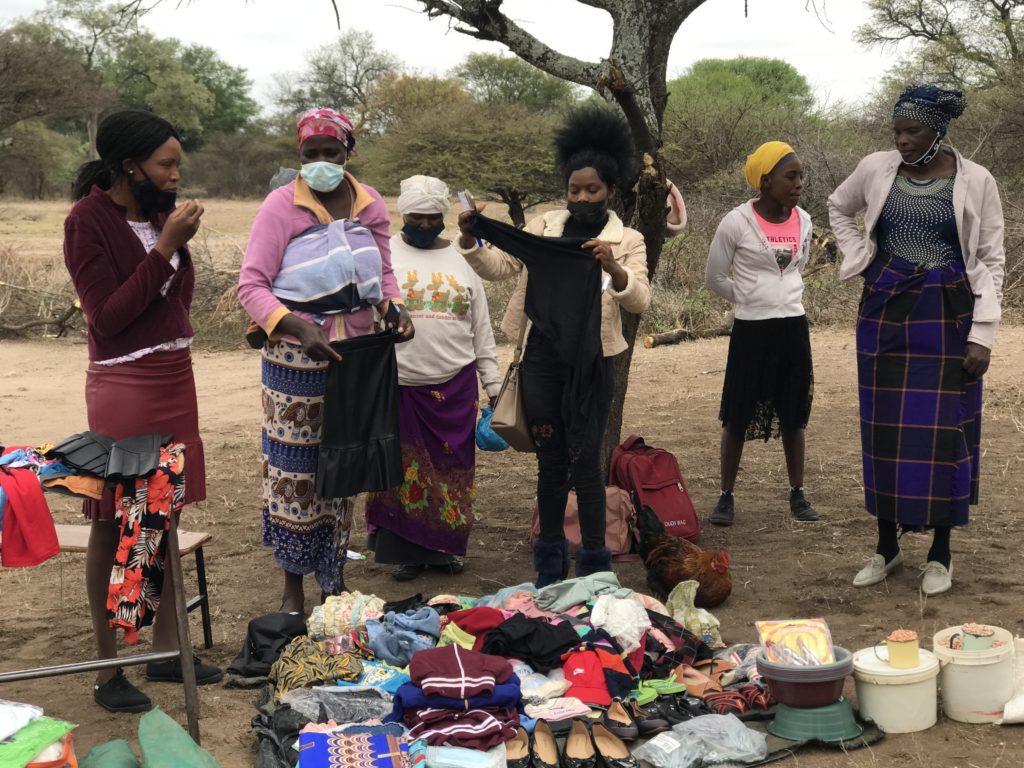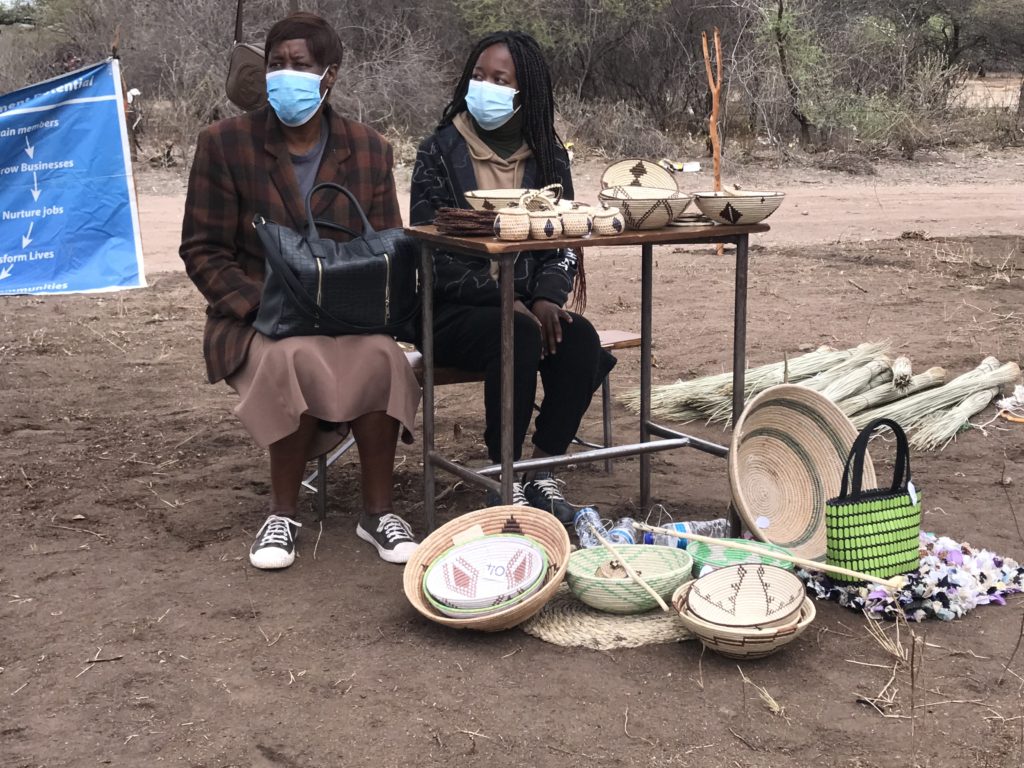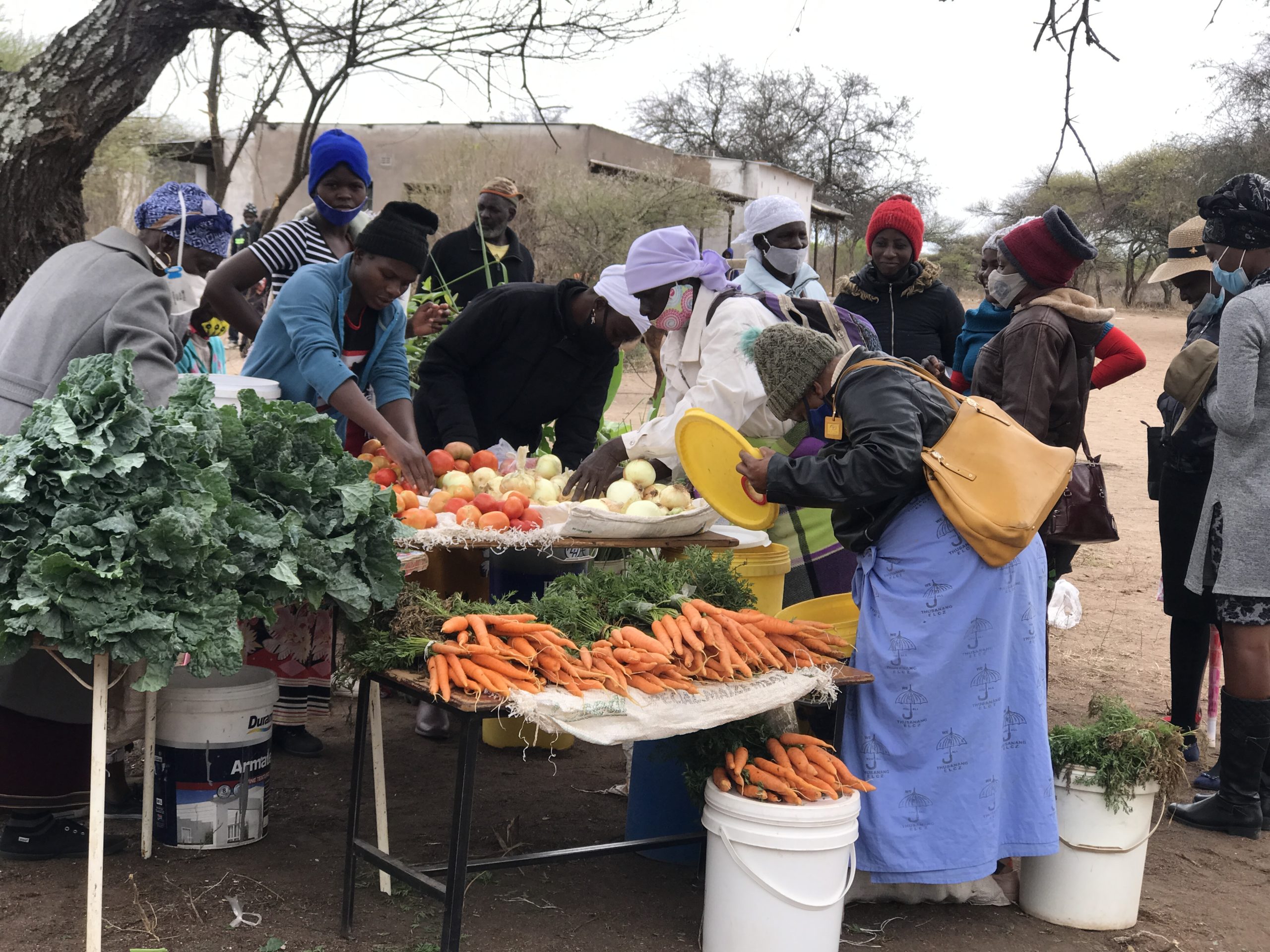Hand in Hand Zimbabwe (HiHZim) recently hosted a mini-market fair at Ngoma Business Centre in Gwanda District.
The mini- market fair was being hosted under the Hand in Hand Zimbabwe’s Market Linkages Project (MLP) which aims to link rural entrepreneurs with new and bigger markets.
Products and wares on display at the fair included traditional foods, crafts, household material, clothes, dried vegetables, detergents, fresh vegetable produce from their horticultural enterprises, among other stuff.

Sabelo Marupe, HiHZim Gwanda Area Manager, said the purpose of the mini-fair was to facilitate market linkages for the entrepreneurs following the relaxation of the COVID-19 restrictions.
“The COVID-19 posed a threat on the profitable growth and expansion of most of the enterprises we support, but the relaxation of the restrictions by the government of Zimbabwe restored confidence amongst entrepreneurs.
“The mini-market fair enabled entrepreneurs to revive their enterprises, restore confidence amongst customers that were lost during the COVID-19 pandemic and it also assisted entrepreneurs to explore and exploit some opportunities that were created during COVID-19 era,” he said.
Shocks from COVID-19 put pressure on business operations resulting in disrupted value chains.

Through MLP, Hand in Hand Zimbabwe constantly links entrepreneurs under its portfolio with both local and international markets at various platforms as part of strategies to reduce poverty and empower people in marginalised areas.
The project, which seeks to reinforce access to markets and finance for entrepreneurs supported by Hand in Hand Zimbabwe, focuses on complimenting already established enterprises under Hand in Hand Zimbabwe Projects.
This is achieved through strengthening access to finance and market linkages in selected value chains such as horticulture, small livestock, apiculture and food processing in order to boost productivity, competitiveness, high income and sustainability.
MLP is being implemented in seven districts of operation namely Bulilima, Chikomba, Chirumanzu, Gwanda, Lupane, Nkayi and Shurugwi.
It is fully funded by the Osterberg Foundation.

